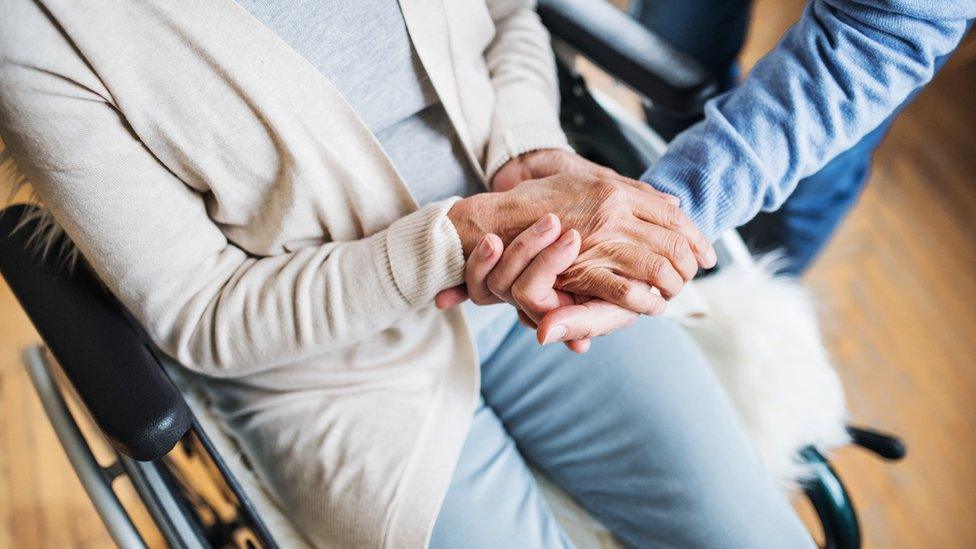Disability hate crime: Record levels recorded in NI
- Published

Incidents of disability hate crime in Northern Ireland are at their highest level since recording began in 2005.
In 2021/22, police said there were 123 incidents, a rise from 90 the year before.
The PSNI defines disability hate crime as any offence perceived by the victim or any other person to be motivated by hostility or prejudice towards someone based on a personal characteristic.
This includes mental ill health, or any learning or sensory disability.
Policing outcomes for disability hate crime are among the lowest compared with other hate-motivated offences, such as racism or homophobic attacks.
A hate incident and a hate crime can differ in the statistics if what has occurred is below the level of severity which would lead to a crime being recorded.
The PSNI's report, external found crimes with a disability motivation reached 93 from 58 the previous year.
Of the 93, there were 12 cases which resulted in an outcome such as arrest, caution or community resolution.
Belfast, which typically has the highest level of hate crime, had zero outcomes between 2018 and 2021.
This means that while anti-disability incidents occurred in the city over these three years, no arrests were made.
A similar picture is reflected across Northern Ireland.
'Victims can feel isolated'
In 2019, for example, of the 11 police districts, seven of these had zero outcomes despite hostility towards disabled people occurring in each of these places.
Outcomes improved slightly for disability hate crime in 2021/22, but still only reached a rate of 13% of cases across Northern Ireland.
Insp Patrick Mullan, the PSNI's hate crime lead, said there was a challenge in gathering witnesses and evidence to achieve criminal justice outcomes.
In these cases, the PSNI work closely with community organisations such as Victim Support NI and Leonard Cheshire to support victims.
He added that some victims may also not wish to pursue criminal justice routes and alternative methods such as restorative justice may be better suited for their needs.
Rebecca Waugh, the disability hate crime advocate at Leonard Cheshire, said that disability hate crimes are often overlooked because victims may not report incidents.
She told BBC Talkback most incidents occurred at home and that victims are often left feeling isolated. This is especially the case for people with communication, cognitive, or mobility issues.
The trauma from hate crime can compound pre-existing conditions for the victim, such as worsening mental health, she said.
Hate crime can be "normalised" due to a legacy of conflict in Northern Ireland, she continued, with people being targeted because they are seen as "different".